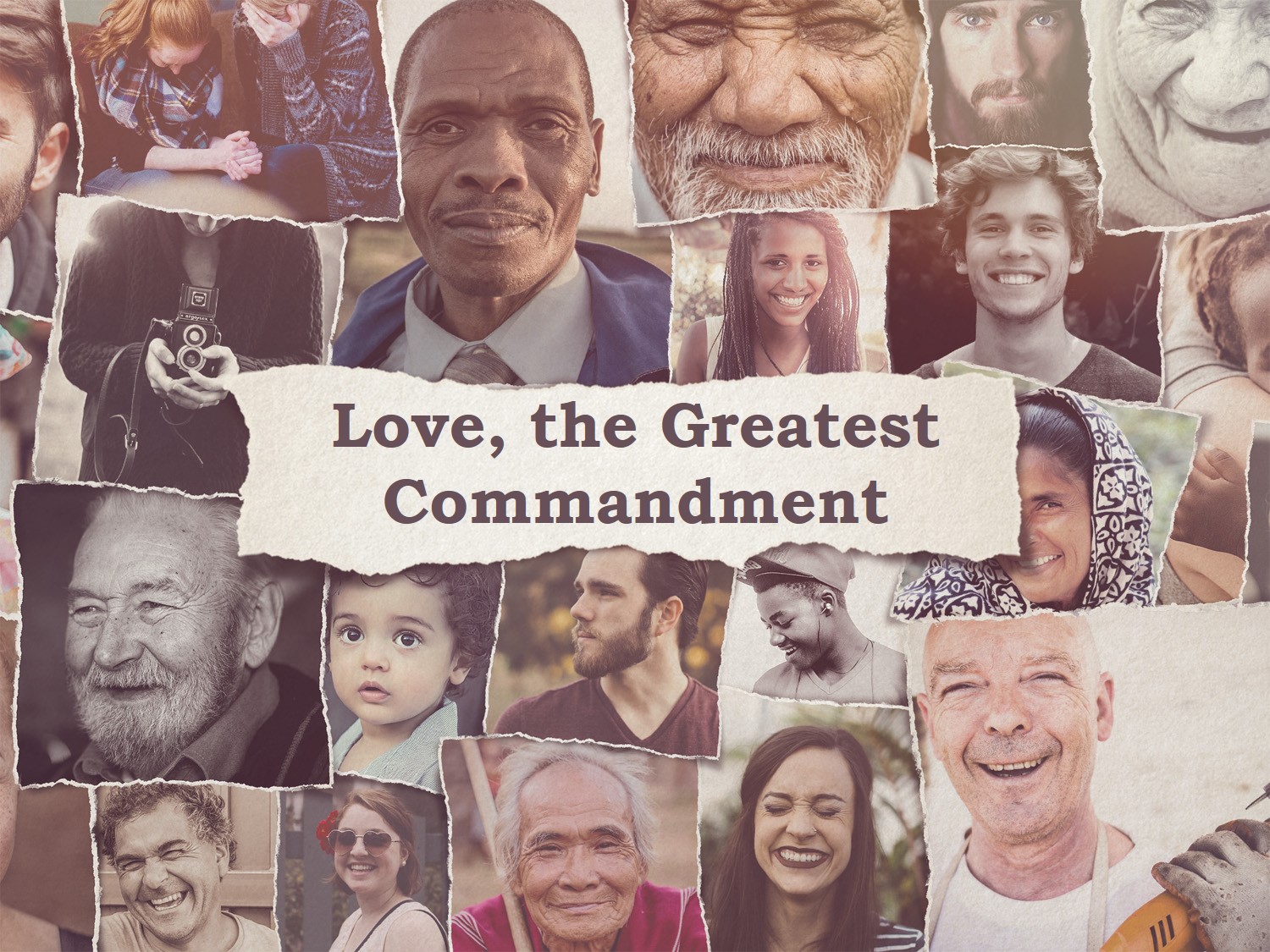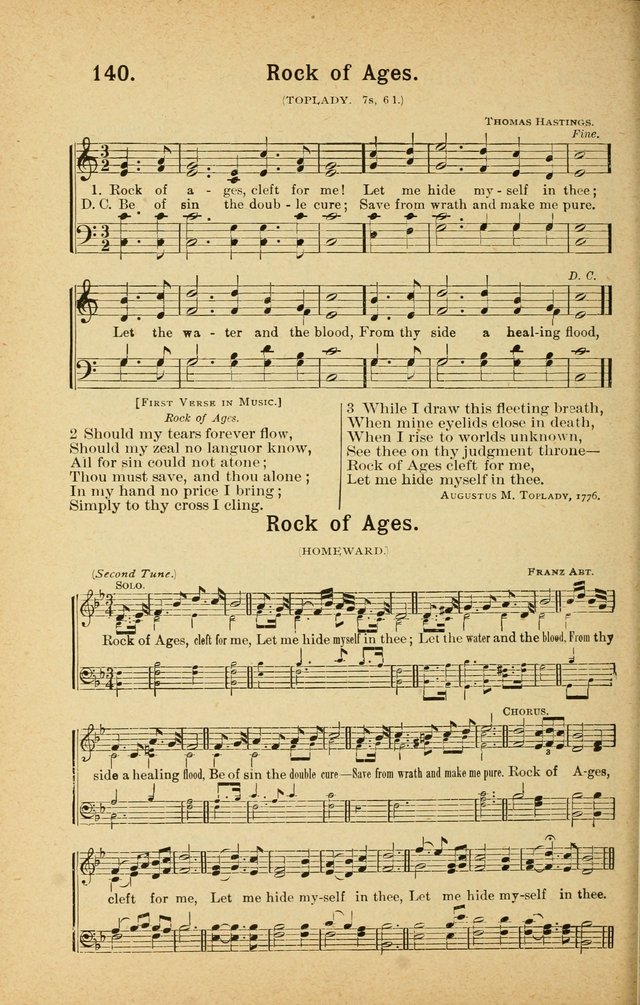Blog
M. W. Bassford
Don't Be an Antipas!
Wednesday, May 27, 2020
The ruler had a lot of respect for God’s prophet. He believed that the prophet was a righteous and holy man. He enjoyed listening to his preaching, and he protected him from harm. After the prophet’s death, the ruler even thought it possible that God might raise him from the dead.
This sounds like a heartwarming story of faith, but in reality, it is anything but. The ruler in question was Herod Antipas, and the prophet was John the Baptist. Though all the above was true, it also was true that Antipas gave the orders for both John’s arrest and his execution.
How do we get from Paragraph 1 to Paragraph 2? How does such a heartwarming story take such a nightmarish turn? The answer lies in the moral weakness of Antipas. Ultimately, his respect and even affection for John were overwhelmed by his flawed character.
These character flaws manifested in Antipas’ life in three main ways. First, though he was entertained by John, he refused to repent in obedience to the truth. John told him that his marriage was unlawful. That certainly made Antipas’ wife, Herodias, murderously angry, but it did not lead Antipas to put her away.
Second, Antipas loved worldly pleasure. The climactic event of the story took place when Herodias’ daughter danced for the king and his guests. Though Mark does not discuss the dance in detail, when we learn that Antipas was willing to surrender half his kingdom in exchange, we don’t have any trouble inferring what kind of a dance it was. The ordinarily shrewd Antipas (Jesus called him a fox, after all) was so inflamed by lust for his own stepdaughter that he made an impulsive, foolish pledge.
Third, Antipas cared more about the good opinion of others than he did about righteousness. He ordered John’s arrest because of pressure from his unlawful wife. Then, when Herodias’ daughter stunned him by asking for John’s head, he was unwilling to appear foolish in front of her and his guests. He was so very, very sorry about it, but he immediately dispatched the executioner who dispatched John.
There are Jezebels in the world, strong-minded people who determinedly pursue evil. However, there are more Antipases. They mean well. They really, really do! However, they shy away from the pain of repentance, they enjoy the passing pleasures of sin, and they care about what their worldly friends think.
Such people often give us hope. They seem receptive to the gospel. They will talk to us about Jesus for as long as we are willing to keep bringing Him up. However, when the time comes for them to change, they change the subject instead.
Antipases often are likeable. Indeed, we may know the temptation to be an Antipas ourselves. However, we must remember that Antipases don’t inherit the kingdom of God. When the chips are down, they don’t do the right thing. They do the wrong thing. Acutely aware of the pain that godliness will bring, they turn a blind eye to the much greater pain that inevitably will accompany lawlessness.
Nobody should be an Antipas. It’s just not worth it.
Love, the Greatest Commandment
Tuesday, May 26, 2020
This year, our congregational theme has been “Living for Jesus”. As a result, much of our preaching and teaching has been focused on the Lord. I think that’s extremely valuable and important. After all, how can we live for Jesus if we don’t know who Jesus is?
This morning, though, I’d like to take a slightly different tack. I want to focus on the “living” part rather than the “Jesus” part. We can’t live for Jesus without knowing who Jesus is, but we can’t live for Him if we don’t know what His expectations are for us either.
As Clay observed last week, though, meeting those expectations can’t merely be a matter of outward form. The Pharisees were masters of check-the-box religion, but the Lord condemned them harshly because of their inward failings. They were willing to offer God 10 percent even of the herbs from their gardens, but what God really wanted was 100 percent of their hearts.
The same is true for us today. If our religion doesn’t come from the heart, it’s worthless. I’d like to preach this morning, then, in response to another one of those sermon requests. Let’s spend some time contemplating love, the greatest commandment.
We need to begin this study by defining WHAT LOVE IS. In this regard, consider Paul’s words in Romans 13:8-10. To some, it might seem surprising that we need to begin this study with a definition. After all, even small children know what love is and tell their mothers “I love you!”, right?
The thing is, though, that our definitions of love don’t necessarily line up with God’s definition. God is love, and He never is deceived about what truly is loving. That’s not true for us, though. We are prone to being deceived by others and even deceiving ourselves. As a result, we may sincerely believe that our conduct is loving when in God’s eyes, it isn’t loving at all. Indeed, people have done great evil in the name of loving God and loving their neighbor.
We think we know what love is, but we don’t. In order to help us, then, God gave us His definition of love. That’s really what the Bible is. Every commandment in the law of Christ is an expression of love, either for God or for our neighbor.
Sometimes, people get this wrong. They say, “My heart is filled with love, so getting all those tiny things right in God’s law doesn’t matter.” That’s exactly backwards. Our hearts are not so good that we get to sit in judgment on the word of God and decide which parts are important for us to keep. Instead, we must allow God’s word to sit in judgment on our hearts, to highlight all the places where we fall short of His perfect love.
Indeed, the more difficult, even outrageous, we find God’s commandments, the more important this becomes. I know people who have serious problems with the Bible’s condemnation of the practice of homosexuality. However, their outrage doesn’t highlight a problem with the Bible. It highlights a problem with them. God’s word is perfect. We aren’t. We need to be humble before it and live accordingly.
Second, we must understand WHY LOVE MATTERS. Here, let’s consider the encounter between Jesus and the scribe in Matthew 22:34-40. A lot of the time, we think that calling love the greatest commandment was a new teaching from Jesus. It wasn’t. In fact, whenever we see somebody in the gospels asking Jesus what the greatest commandment is, it’s because they know the right answer and are checking to see whether He does.
Jesus calling love the greatest commandment in v. 38, then, isn’t the new, intriguing part. Instead, it is when He reveals in v. 40 that all the Law and the Prophets depend on love. Some translations here say that on love hang all the Law and the Prophets, and I think that highlights the function that love serves.
Imagine, then, that love is like a peg or a hook on a wall, and you’ve got a bunch of things hanging from that peg—depending from it, if you will. If you remove that hook, if you take out that peg, all of those things are going to fall to the floor in a heap.
If you take the animating principle of love out of God’s law, the same thing is going to happen. Yes, every commandment was handed down to us as part of God’s definition of love, but it is equally important that we use those commandments as ways to express our love for God and others. If we forget about love, our failure will ruin our obedience.
In fact, this is exactly what happened to the Pharisees. They thought they were keeping the Law, but they forgot about love, and as a result, rather than expressing love, their selective Law-keeping expressed self-righteousness, hypocrisy, and hard-hearted contempt for others. The same thing can happen to us. A Christian without love is nothing more than a Pharisee.
Finally, let’s examine WHAT LOVE LOOKS LIKE. Look at 1 Corinthians 13:4-7. This is a familiar passage. Clay read it during his sermon last week. It’s commonly used during weddings. Everybody thinks it’s so poetic and beautiful and heartwarming and all the rest of that stuff. The thing is, though, that we only can take it so lightly when we don’t think about what it’s actually saying and how it applies to us. Once we start thinking that way, rather than being beautiful and heartwarming, this is a text that becomes painful and humbling.
To illustrate this, let’s spend a few moments considering the coronavirus edition of 1 Corinthians 13. Over the past six weeks or so, many of us have found ourselves spending more time with our families—our loved ones—than we ever have before. During that time, how have we honored God’s ideal of love?
Love is patient. Over the past six weeks, have we always been patient, even when one of our kids wakes up on the mouthy side of the bed one morning? Love is kind. Have we always been kind to our spouses, even when we’ve been tripping over each other for the past six weeks?
Love is not arrogant. Have we been arrogant? Have we demanded things from our families that we have no right to expect? Love is not rude. Are we ever rude to our loved ones? Love is not self-seeking. Do we ever, just for the tiniest little moment, get fed up with serving our families and start wondering when someone is going to do for us instead?
Love is not irritable. Are we? Do we sometimes wake up on the wrong side of the bed ourselves and make sure everybody knows about it? Love does not keep a record of wrongs. Do we? Have we spent our quarantine making a little list of everybody’s shortcomings and failings, until finally we blow our stack about them?
I could go on, but I think that makes my point. Is there any Christian here who is willing to testify that they’ve been perfectly loving during isolation? I don’t know about the rest of you, but I can’t make that claim. When it comes to love, all of us have got a lot of repenting to do, and a long way to go before we become like Jesus.
Lessons from the Greatest Hymn List
Friday, May 22, 2020
Last week, I posted my take on what the 50 greatest hymns of all time were, and I revised the list a few days later. Though the exercise was interesting in itself, I think the process generated some lessons that were even more interesting. I think they are as follows:
ALL HYMNS ARE NOT CREATED EQUAL. The unspoken assumption behind my compilation of the list, an assumption shared by the hundreds of Christians who interacted with me on the various threads about it, is that hymns are not all the same, and that the differences between them matter. To put things another way, there is such a thing as a good hymn, so there necessarily must be such a thing as a bad hymn.
Whenever I posit the latter online, I invariably get pushback from somebody who insists that a hymn cannot be bad unless it teaches false doctrine. In a sense, I suppose that’s true. A poorly written, low-content hymn does not directly send people to hell, any more than a sermon that’s a stand-up comedy routine or a Bible class that’s about pop psychology does.
However, most brethren will critique the pulpit comic and the pop-psychologist Bible-class teacher not for what he says, but for what he does not say. The same critique applies with equal force to bad hymns. It’s not enough for a hymn not to be actively harmful. It must be actively helpful. It must present the worshiper with meaningful spiritual content (the more the better) in a usable form, because all of us need all the help we can get.
OLDER IS BETTER. When I revised my list, I replaced the four most-critiqued hymns on the list with the four whose absence was most lamented. The oldest hymn that I removed was more recent than the most modern hymn I added. Indeed, three of the four additions (“O Thou Fount of Every Blessing”, “Rock of Ages”, and “Amazing Grace”) hailed from the eighteenth century, and two of the hymns I removed came from the twentieth century.
I was not surprised. As a rule, the older a hymn in our repertoire is, the better it is. This is not because all the hymns written in the eighteenth century were good, or even because most of them were good. It’s because the less-than-excellent ones have been eliminated by successive generations of song leaders and hymnal editors with all the ruthlessness of a farmer shooting rats in a barn. Bad old hymn? Mediocre old hymn? Bang! Dead.
This should call today’s hymnal editors, CD compilers, slide-deck creators, and song deacons to caution in adding to the repertoire. Most new hymns and praise songs today are not good either, and when we shove aside the great hymns of the past to make room for them, the quality of our song worship suffers. There are hymns that deserve to be added (“In Christ Alone” is a shining example here), but there are not nearly as many of them as many brethren think.
POP HYMNS DON’T MEASURE UP. Because this was my list, the most heavily represented category was nineteenth-century American gospel hymns. Mostly, nobody complained about that. Compared to our repertoire, the most under-represented category was 20th-century Southern gospel hymns, the hymns of the radio era. Only two of the hymns on my list were written in true Stamps-Baxter quartet style, “This World Is Not My Home” and “Victory in Jesus”. “Victory in Jesus” endured significant critique, to the point where I reasonably could have cut it instead of “Teach Me Thy Way”, which was my fourth strike. Nor did I sense much of a groundswell of support for adding more Southern gospel hymns to the list.
Those hymns were the first to come from an era of mass-media performance. Everybody in the South listened to gospel quartets over the radio back in the day, and those songs transformed the repertoire of churches of Christ. I would estimate that half or more of the hymns in Sacred Selections are from this genre.
Today, though, the Stamps-Baxter hymns are dropping rapidly from use. Now that they are no longer culturally relevant, their true colors have been revealed. Worship progressives and conservatives alike attack them for being old-timey, hokey, shallow, and not very meaningful. Indeed, in the comments on my list of good hymns, several brethren took advantage of the opportunity to poke at hymns not on the list that they didn’t like. Every one of the hymns so marked was a radio hymn.
This should teach us to beware of succumbing to the allure of cultural relevance today. There are plenty of hymns (though their adherents prefer to call them “praise songs”) written in the style of modern pop music that currently are elbowing their way into the repertoire. As was true for radio hymns, this transition often is difficult because such songs are written for performers and then adapted rather than having been created for the congregation. Their kinship to their Stamps-Baxter cousins also often appears in their shallow, repetitive content.
Such songs appeal more to the zeitgeist than to the spirit. 100 years from now, when someone who hasn’t even been born yet compiles a Top 50 Hymns list, not many of them will appear on that list either. Hymns like “When I Survey the Wondrous Cross” will continue to be beloved, but today’s hit singles will seem dated, old-fashioned, and irrelevant—just as Southern gospel hymns increasingly do now.
Some may be fine with the idea of a disposable worship repertoire. I’m not, especially when so many older hymns are worthy of use today. It’s like dumping Grandma’s china on the curb and eating Thanksgiving dinner off of paper plates. There are people who do that too, but I don’t think I’m alone in believing they’ve lost touch with something important.
School, Transgender, and Your Kids
Thursday, May 21, 2020
These days, it seems like many Christians are preoccupied with coronavirus conspiracies of various sorts. I have little to say about all that, except to observe that the conspiracy theorists must have much more faith in the competence of the human race than I do. I think, though, that we would be better served to pay less attention to the conspiracies and more attention to the daily efforts of those who are opposed to the cause of Christ.
Take, for instance, this report from the Alliance Defending Freedom. For those of you who aren’t familiar with the ADF, it’s a nonprofit dedicated to the advancement of conservative legal causes. It is a serious organization with serious deep pockets and serious lawyers. When the ADF says something, it’s not on the same level as russiatrollbotnews.com. This really is happening.
Essentially, a number of conservative parents who live in Madison, WI have filed suit against the Madison public-school district. They learned that the district has been engaged in a stealthy campaign to promote transgender ideology. From kindergarten on up, students are being taught that gender is a spectrum, rather than being biological and binary. Parents have not been notified about this. If a child decides that they are transgender, school employees are to help them transition without parental notice or consent. In order to make sure that Mom and Dad remain in the dark in such cases, district policy is to refer to transitioned Janey as un-transitioned Johnny in all communications with the home—to deceive parents.
In short, the Madison school district is attempting to substitute school input for parental input in one of the most consequential moral decisions a child can make. A month ago, I wrote about Harvard professor Elizabeth Bartholet’s desire to outlaw homeschooling. Among other things, she argued that public schooling was necessary to expose children to “ideas about nondiscrimination and tolerance of other people’s viewpoints.” Thanks to the Madison Metropolitan School District, we’ve got a concrete example of what such exposure looks like in practice.
Now, I don’t think this is likely to be a problem in rural middle Tennessee, where I live. There are many other places around the country where school districts also haven’t bought into progressive ideology. However, there are plenty of places where school districts have. It’s true that, from what I know of Madison, public policy there is likely to be progressive even by progressive standards. Nonetheless, even if your local progressive district hasn’t gotten there yet, MMSD gives us a pretty good idea of where it’s headed in future.
It used to be that public schools were (at least seen as) relatively neutral, benign educational establishments. You could send your kids off every day and trust that the school pretty much would stay in its lane and leave the moral instruction to you. Sadly, that conviction is becoming increasingly naïve.
As always, I leave decisions about how children should be educated to parents. You decide in good conscience what method is best for your kids, and I’ll respect that, whether you have chosen public school, private school, or homeschool.
However, I will say that parents who have chosen public school in blue districts need to be wary. Do not assume that worldview indoctrination is going to be preceded by waving banners and brass bands. Instead, you need to ask probing questions, both of your children and of their teachers, about what kinds of things are being taught. If you get answers you don’t like, you don’t necessarily have to yank your kids, but you do have to make sure that the predominant moral narrative in their lives is the Biblical one.
We live in a strange time. On a fundamental level, I can’t get my head around the idea that people believe that gender is a matter of preference rather than biology. It flat doesn’t compute for me, and I suspect that many other Christian parents are in the same boat. However, there are millions of folks out there who believe this with the same fervor with which we believe in the resurrection, and they will not hesitate to use any means available to proselytize. If we are not vigilant in this and related areas, we may end up regretting our failure for the rest of our lives.
Why I Switched to the CSB
Wednesday, May 20, 2020
English-speaking Christians are blessed with a plethora of good translations of the Bible. Of course, translation is an art, not a science. There are no perfect translations, nor will there ever be.
However, practically every translation that we’re likely to encounter is more faithful to the original Hebrew and Greek texts we have than the Septuagint is to its Hebrew originals. If the Holy Spirit thought the Septuagint was good enough to incorporate into the New Testament, whatever we’ve got is good enough to get us to heaven!
Because we are so spoiled for choice, though, those of us who care about the Bible are likely to move from translation to translation, looking for one that is maybe a little bit more perfect than the rest. In my time as a preacher/Bible reviewer, I’ve preached and taught from at least 10 different translations, and at various times, I’ve used three translations (NASB, NKJV, and ESV) for my primary text.
A couple of months ago, though, I decided to try out a fourth translation for my every-day Bible—the Christian Standard Bible, or CSB. When I switched from NASB to ESV a few years ago, the CSB was a strong second-place finisher, and my occasional use of it ever since gradually swayed me to adopt it. Several factors played into this decision:
VOLUME QUALITY. My copy of the CSB is bound in edge-lined goatskin that Holman sent me as a promo copy in 2017 when they rolled the translation out. It’s true that I love edge-lined Bibles, and once you’ve gotten used to one, it’s tough to go back to paste-down.
However, it’s really the quality of the setting of the CSB that influenced me here. My CSB was set by 2K, a Danish shop that is world-famous for its Bible designs, and the quality shows. It’s better designed than the ESV I was using before. My CSB is prettier, easier to read, and has cross-references that are easier to use. As far as I’m concerned, anything that makes reading and studying the word more pleasant is well worth adopting!
STYLISTIC QUALITY. I love the English language and rejoice in good writing. As a result, I struggle to love translations that prioritize faithfulness to the words of the Greek (and sometimes even to Greek grammar) over making clear sense in English. Brethren often are fond of these translations (I think because they appear to remove human judgment from translation, though in truth they do not), but they often pose obstacles to our understanding. These obstacles can be surmounted in verse-by-verse study (as when the preacher reads a verse and then pauses to explain what it means in normal English), but they often make Bible reading difficult, especially for new Christians who don’t speak fluent NASB.
By contrast, the style of the CSB is accessible and lively. Instead of talking like Bible characters, speakers in the CSB sound like real people. For instance, in Luke 6:46 in the CSB, Jesus says, “Why do you call me “Lord, Lord” and don’t do the things I say?”
The CSB also is full of aptly phrased renderings. Consider the difference between Ruth 2:12 in the NASB (“May the LORD reward your work, and your wages be full from the LORD, the God of Israel, under whose wings you have come to seek refuge.”) and the CSB (“May the LORD reward you for what you have done, and may you receive a full reward from the LORD God of Israel, under whose wings you have come for refuge.”). The NASB undeniably sounds more Hebraic, with idioms like “your wages be full”, but it’s the CSB that sounds like good English. That’s important!
TEXTUAL FAITHFULNESS. It is, of course, possible for translators to take accessibility too far. Unlike most brethren, I’ve used the NLT extensively (I read the whole thing cover-to-cover a few years back), and though I like it for reading, I feel like the translators take too many liberties, especially in the New Testament, for the translation to be suitable for close study. When I’m reading from the NLT, there are a dozen places in the book of Romans alone where I stop and say, “Man; they sure booted that one!”
The translators of the CSB are much more careful. So far, at least, I feel that the translation sacrifices little in the way of nuance and faithfulness in exchange for great gains in style and clarity. Of course, there are CSB renderings that I don’t like, but there are renderings in every translation I don’t like. To this point, they are infelicities I can live with.
I also like the balance that the CSB has struck on gender equality. The translators generally render the Greek adelphoi as “brothers and sisters” (unless the context makes it clear that only males are under discussion), and they replace “how blessed is the man” in Psalm 1:1 with “how blessed is the one”. However, the pronoun throughout Psalm 1 is “he”, and the translators preserve the singular “son of man” in Psalm 8:4 (compare “human beings” in the NIV). It remains to be seen whether the upcoming 2020 revision of the NASB will fare as well.
I certainly don’t insist that every Christian out there needs to switch to the CSB Right This Minute. It almost certainly is true that the Bible you’re using right now is get-you-to-heaven good (though if you struggle to adhere to a Bible-reading program, consider that your choice of translation and setting may be at fault). However, for those who are looking for another Bible or simply are curious, the CSB is well worth checking out.


